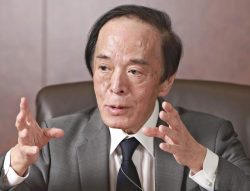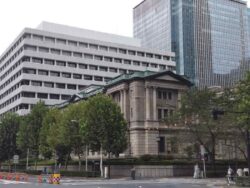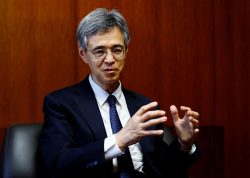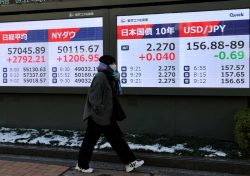Weakening Yen Adds Complexity to BOJ’s Rate Hike Decisions; Rising Commodity Prices may Impact ‘Virtuous Cycle’ Efforts
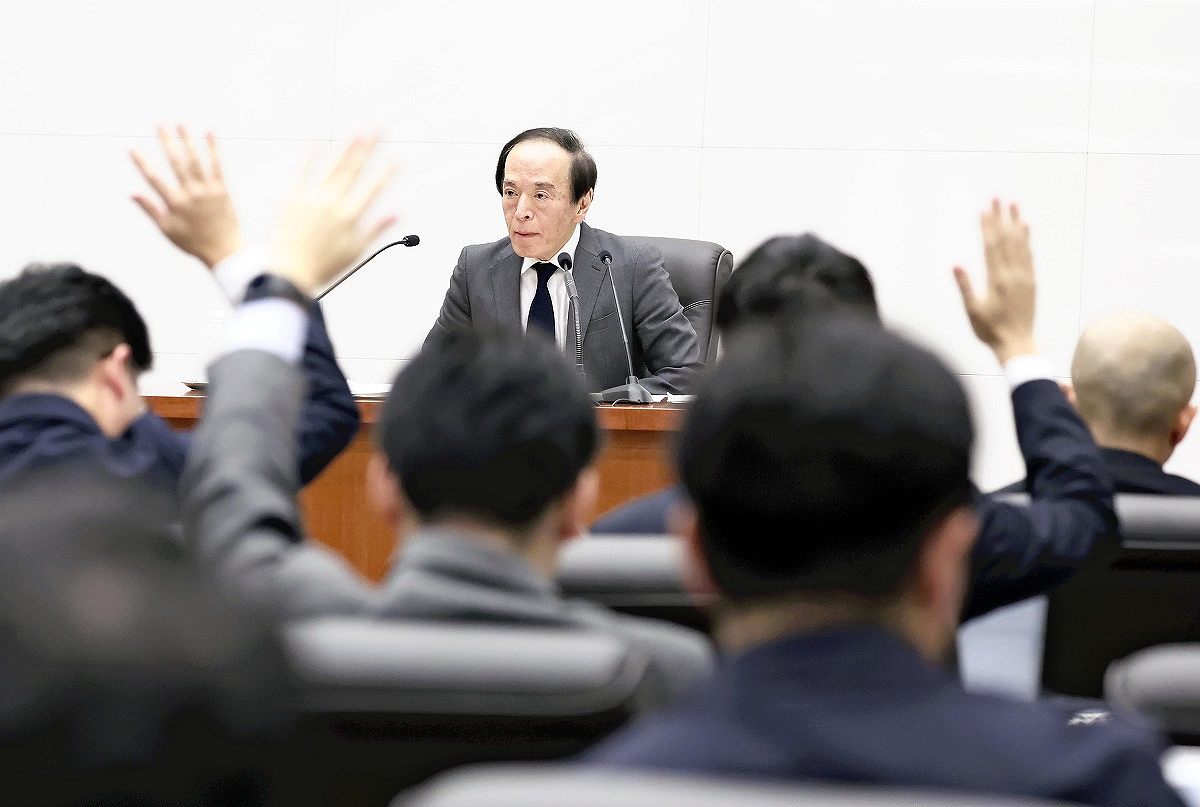
Bank of Japan Gov. Kazuo Ueda attends a press conference after the Monetary Policy Meeting at the bank’s head office in Tokyo on Friday.
20:00 JST, April 27, 2024
A weaker yen — which will cause prices to rise again due to the increasing cost of commodities — will make it more challenging for the central bank to decide on additional interest rate hikes.
The Bank of Japan seeks the virtuous cycle of rising both wages and prices, an important factor in their decision to raise interest rates. The depreciation of the yen may make it more difficult to determine the degree to which a virtuous cycle has been achieved.
The yen weakened against the dollar in foreign exchange markets after the BOJ decided to keep its key interest rate unchanged at its Monetary Policy Meeting on Friday.
At a press conference at the BOJ headquarters, Gov. Kazuo Ueda was asked many questions about the impact of the weak yen and strong dollar, such as, “How do you think the weak yen is affecting prices?”
In response, Ueda said that the current level of yen depreciation has so far had no impact on the underlying rate of inflation, excluding temporary factors.
Ueda said that the likelihood of achieving the target of a stable 2% rise in prices is increasing. If prices rise in line with its outlook, the bank intends to adjust the level of monetary easing, he said. Then the BOJ is likely to consider raising interest rates further.
However, a weaker yen will push up the inflation rate by increasing the prices of imported goods. Ueda stated that there is a non-zero risk that exchange rate fluctuations will affect the rate of price increases in the future.
Many believe that the yen will continue to weaken against the dollar for the time being, as speculation grows that the Federal Reserve will not cut interest rates.
Given the calls from the business community and others to address the weakening yen, the BOJ may be forced to take action before it can see that the virtuous cycle has been achieved.
A further increase in interest rates would have a significant impact on people’s lives, as it would lead to an increase in the burden of interest payment costs on variable-rate home loans and an increase in lending rates for businesses.
“[An additional interest rate hike] would affect a wide range of economic entities. We will proceed with caution, taking into account the potential diverse impacts,” Ueda said.
“The BOJ needs to explain more thoroughly to the public why it is targeting 2% inflation when high prices are becoming a burden on people’s lives,” said Izuru Kato, a BOJ watcher at Totan Research Co.
Top Articles in Business
-

Prudential Life Insurance Plans to Fully Compensate for Damages Caused by Fraudulent Actions Without Waiting for Third-Party Committee Review
-

Japan, U.S. Name 3 Inaugural Investment Projects; Reached Agreement After Considerable Difficulty
-

Japan’s Major Real Estate Firms Expanding Overseas Businesses to Secure Future Growth, Focusing on Europe, U.S., Asia
-

SoftBank Launches AI Service for Call Centers That Converts Harsh Customer Voices into Softer Voices
-

Green Tea Exports Hit Record High in 2025 Amid Growing Demand, Likely to Be Driving Force Behind Govt Export Target
JN ACCESS RANKING
-

Producer Behind Pop Group XG Arrested for Cocaine Possession
-

Japan PM Takaichi’s Cabinet Resigns en Masse
-

Man Infected with Measles Reportedly Dined at Restaurant in Tokyo Station
-

Israeli Ambassador to Japan Speaks about Japan’s Role in the Reconstruction of Gaza
-

Videos Plagiarized, Reposted with False Subtitles Claiming ‘Ryukyu Belongs to China’; Anti-China False Information Also Posted in Japan




